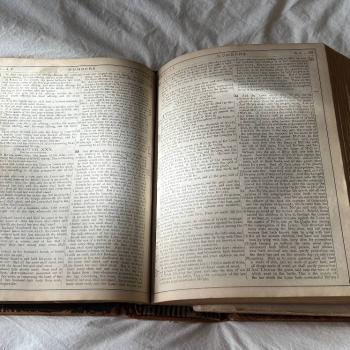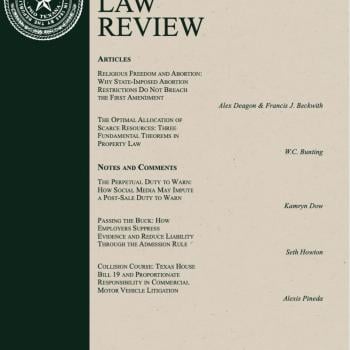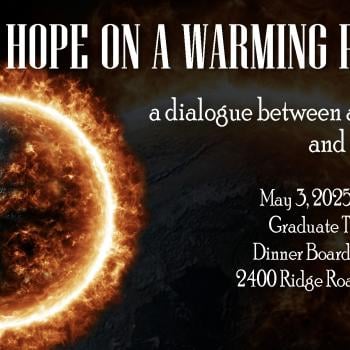Most people don't think of magickal disciplines as spirituality. Is there a difference between a magickal discipline and a spiritual discipline?
I guess it depends entirely on the attitude, motive, and intent of the individual practitioner. It's quite possible, in my opinion, to be a perfectly effective magician without subscribing to any particular discipline that most people usually consider as being "spiritual."
You were on a Pagan panel at PantheaCon recently. Many Pagans are interested in the O.T.O., especially through the writings of Crowley and yourself, although the O.T.O. itself isn't specifically Pagan. How would you characterize the relationship of the O.T.O. and the Pagan community? Do you consider yourself Pagan?
It, of course, comes down to your accepted definition of the word "Pagan." If by the term you mean "rustic" or "country person" I am not a Pagan. If by the term you mean a person that reveres or worships a deity or pantheon of deities other than that (or those) worshipped by the Abrahamic religions then my answer is a qualified "Yes." If by the term you ask if I'm a person who worships the earth as the supreme goddess and attempts to synchronize my entire spiritual focus upon the rhythms of the year and its cycles of agriculture and husbandry my answer is an unqualified "No." I don't worship the "Pagan" Goddess of Nourishment of two aeons ago. I don't worship the "Chrislemew (Christian Muslim or Jew) dying god of sacrifice and superstition of the last aeon. If anything, I worship the Child that represents the formulae of the present aeon, and I attempt to synchronize my spiritual focus on the formula of natural growth. If that makes me a Pagan... then I'm a Pagan.
Can someone be active in the O.T.O. without being a member of the Thelemic religion? Are all faiths welcome?
The O.T.O. requires only that an individual be able to say in good conscience that he or she "accepts The Book of the Law (the primary Holy Book of Thelema, dictated to Crowley by a praetor-human intelligence in 1904) without wishing to make changes in it." As no one may presume to interpret The Book of the Law for another, this puts the responsibility for one's understanding of the text squarely in one's own lap. If an individual believes that his or her religious beliefs can be compatible with their understanding (or even their indifference as to the meaning) of The Book of the Law then there is no other litmus test other than that applied by the individual.
That being said, there are many O.T.O. members who consider themselves Pagans. There also quite a few who consider themselves Jews. One of my dearest O.T.O. brothers is a Muslim. There are even those who consider themselves Christian (although by most "Christian" doctrinal standards they would be considered highly irregular or even heretical Christians.) There are quite a few who are comfortable identifying themselves as atheists, and a growing number who are Freemasons who are vocally not atheists.
Much of ceremonial magick draws from Judeo-Christian traditions. For some Pagans that's uncomfortable territory. Why should a Pagan work with angels or study Jewish mysticism?
They shouldn't feel the need to if they are comfortable with their mastery of the rites and traditions of their Pagan religion.
The O.T.O. has been associated with sex magick and you have written three books on the subject. What would you like to say to people who are interested in ceremonial magick and the O.T.O., but find the subject of sex magick uncomfortable or off-putting?
If after reading what I've written about the subject, someone is still disturbed by a discussion of the more universal or even metaphoric aspects of sex, then I must respectfully conclude he or she has important psychological issues that they should address before they involve themselves in any form of esoteric study undertaken by adults.
Your acclaimed book on practical Qabalism for the magickal community, The Chicken Qabalah of Rabbi Lamed Ben Clifford: Dilettante's Guide to What You Do and Do Not Need to Know to Become a Qabalist, is written in the voice of an imaginary rabbi. Why did you choose to write as a humorous fictional character?
Because Rabbi Lamed Ben Clifford could say things that I would be hesitant to say. It's like the shy ventriloquist who can only really speak his heart through the wooden lips of his dummy.
Your autobiography, My Life with Spirits, is required reading for two classes at DePaul University in Chicago. Can you tell us about that?
It's a class on Modern Religion. A few years ago when I was in Chicago I even got to address the class.
Magickal authorities, like Crowley, have traditionally been seen as self-aggrandizing and egotistical, and magickal texts as obscure and ciphered. Your autobiography and books on magick tend to be funny and down-to-earth. Is humor and accessibility necessary to reach a modern audience?





